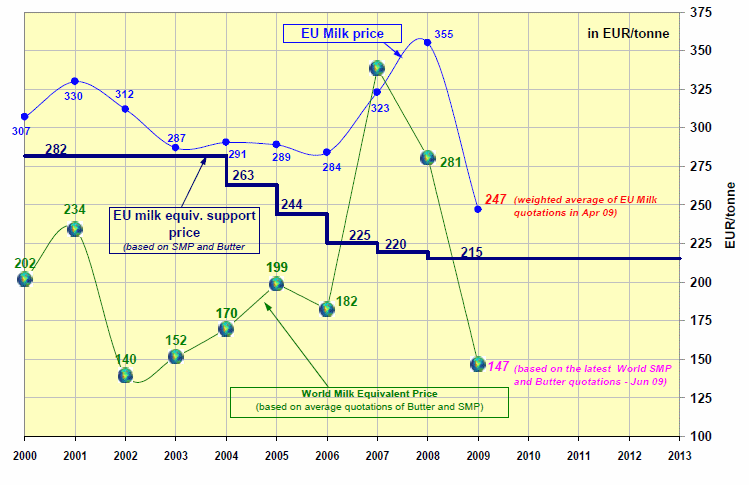Today, the US raised its intervention support prices for some dairy products as a way of supporting the US farm price for milk. The support price for skimmed milk powder was increased by 15 percent and for cheddar cheese by 16 per cent for a limited 3-month period. Immediately milk prices on the Chicago Mercentile Exchange increased by 5 per cent, and it is estimated that the measure will add $243 million to US dairy farm incomes in the current year.
From a European perspective, this measure has ambiguous effects and may even be welcomed for its short-run effects. In the short run, the Commodity Credit Corporation will enter the market as an additional buyer, raising the floor price of milk.… Read the rest

 …
…